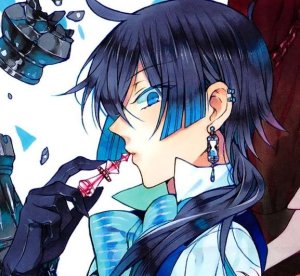This is basically Lost In Austen with kdramas. The premise is almost exactly the same, the difference is that, here, the person being inserted in the story does not belong to the same culture as the story itself, that is to say, she's a white girl in an idealized version of South Korean culture, solely marked by what kdramas depict of it and what tropes they use. Therefore, they call it "DramaWorld" as if a) kdramas were the only dramas out there and b) by solely referencing dramas, they think they're allowed to take it lightly with how idealized the representation of South Korean culture actually is.
For what it is, I guess it's entertaining, they make fun of tropes and say some things a lot of us are thinking when watching dramas in general (my favorite quote being the male lead admitting to being a jerk) and they do twist things up a bit, which is rather interesting to some extent. It's short and ends with cliffhangers so you could end up watching it all in one sitting and be fairly entertained. I don't think they're aiming for it to be realistically depicted, since it's all more or less in an ironic tone, exaggerated acting and weird choices aren't too much out of place. It's not the best performed drama out there, not at all, but it's not taking itself seriously either, so it doesn't really bother that much that it isn't. For the most part, because Justin Chon can be too much for me sometimes in everything I've seen him in.
My main issue with the drama is linked to something I've noticed in the last 7 to 10 years in the kpop world and not so much (or almost at all) in the jpop world. When kpop became more exportable to English-speaking cultures, especially in USA, people who came into the world of Asian music and dramas then started sort of expecting it to be catered to them rather than seeing it as something made for other audiences, a foreign product of which they were guests to, something I believe jpop fans were always used to. For example, I started seeing kpop Youtubers criticize kpop bands for not using English grammar correctly in their videos, or seeing kpop fans question why the bands they liked had to "bother to go to Japanese shows and sing in Japanese at all" and things like that. Instead of adapting to these products, the new crowds started expecting the products to be adapted to them and their western views, and I found it particularly curious how kpop, contrary to jpop, started attempting to cater back to them.
Taking that into account (especially when I compare this to Lost In Austen, which was my first thought upon seeing it) I feel that this drama is more the North American view of what kdramas are rather than a kdrama in itself. This is taking what an American white girl idealizes from kdramas, as in tropes, cliches and plot devices, and romanticizing that in a fictional world where culture isn't even mentioned. When cultural stuff appears, it's rather as a "drama genre" or a "trope" rather than an actual cultural representation, separating this "DramaWorld" from South Korea as a whole. This makes me uneasy, because it reduces things that are a product of South Korean society and culture as "just kdrama things" under the view of the American white people who were in charge of creating this and, by extension, of the protagonist, who rather than trying to subvert the cliches or question the narrative, idealizes what is problematic of kdramas and overlooks what is culturally specific.
I understand this drama isn't meant to be serious, that it's meant to be a parody, but to me it represents the western view of South Korean media, pushing aside what it really is trying to be. If this had been about this white girl learning things from this culture and also influencing the female protagonist of the drama with some of her western ideas, to create a change of perspective for both (I hate to say this, I really do, but kind of what Teen Beach 2 was about) or if it had been about a South Korean girl getting into the world of dramas and questioning what she considers her idealizations and aspirations of her own culture, then it would have been much more interesting to me. Even as a parody.
Was this review helpful to you?





















